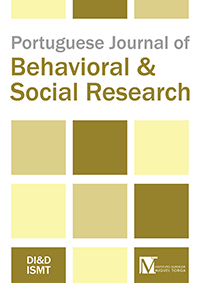Affiliation

FOCUS, MISSION, AND SCOPE
The Revista Portuguesa de Investigação Comportamental e Social | Portuguese Journal of Behavioral and Social Research [RPICS|PJBSR] is a biannual publication of the Research and Development Department of Instituto Superior Miguel Torga dedicated to research in the multidisciplinary area that characterizes its editorial project since 2015, including the behavioral sciences (psychology, neuropsychology, family therapies, pedagogy, medicine, neurosciences, etc.) and social (social work, sociology, management, etc.).
The RPICS|PJBSR is committed to providing a platform for disseminating original, high-quality research, advancing knowledge in the Behavioral and Social Sciences, and giving emerging researchers a voice. With our Diamond Open Access policy, we facilitate the participation of new researchers from around the world and encourage young talent to appear in the field of research. We firmly believe in eliminating financial barriers to publication and promoting sharing and collaboration in the scientific and academic fields.
The RPICS|PJBSR is funded through its resources and aims to publish and disseminate studies on emotional processes, neuropsychological dimensions, social and behavioral processes throughout the life cycle, therapeutic programs and methods, psychometrics, and issues related to society, values, identities, and social relationships.
The RPICS|PJBSR is aimed at psychologists, social workers, sociologists, nurses, physicians, and other professionals with an interest in behavioral and/or social research.
This Diamond Open-access Journal accepts submissions of original articles with empirical data and of revision or meta-analysis in Portuguese, English, or Spanish. The RPICS|PJBSR gives a special welcome to research from Portuguese-speaking Countries. The journal makes a permanent call for articles; that is, authors can submit articles for consideration throughout the year.
All content is available online and is Diamond Open Access, meaning it is freely available without charge to readers, authors, or institutions. Users are allowed to read, download, copy, distribute, print, search, or link to the full texts of the articles or use them for any other lawful purpose without asking prior permission from the publisher or the author. This is in accordance with the BOAI definition of open access.
The editors-in-chief decide on the content of each issue according to the proposals
![]()
